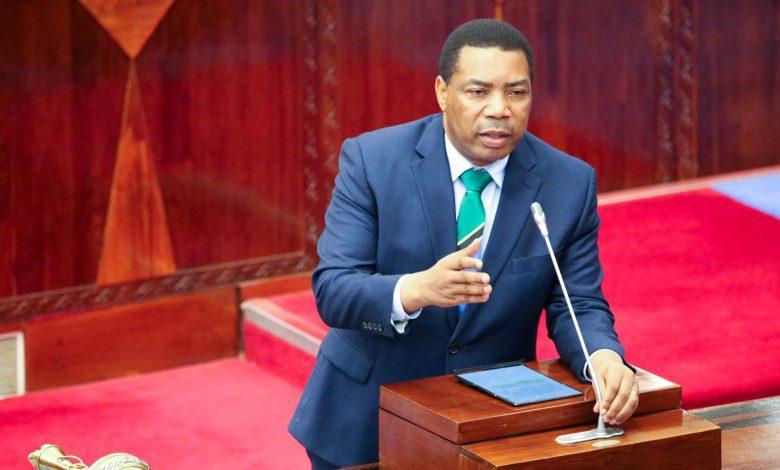Africa-Press – Tanzania. THE National Assembly yesterday passed the Finance Bill 2025, paving the way for a sweeping series of tax and regulatory reforms aimed at energising the nation’s economy and streamlining government revenue collection.
The Bill, now poised to become the Finance Act, 2025 pending assent by President Samia Suluhu Hassan, proposes amendments across various tax and non-tax laws, with the government stating it is part of a broader strategy to drive growth in key social and economic sectors.
“This is a strategic intervention designed to position Tanzania’s economy on a higher growth trajectory, while ensuring more effective domestic revenue mobilisation,” Finance Minister Dr Mwigulu Nchemba told lawmakers.
The Bill introduces a number of changes to tax rates, charges and fees aimed at reinforcing the government’s fiscal capacity.
The Bill also outlines a series of amendments to laws governing taxation and public revenue management.
According to the finance minister, the Act seeks to enhance tax administration while improving the ease of doing business.
The Bill has introduced changes to the Business Licensing Act, barring licensing authorities from shutting down businesses operating without valid licences, a move aimed at reducing bureaucratic harassment and fostering a more conducive environment for business growth.
The Bill on the other hand gives the Minister responsible for trade the authority to designate business activities that may be restricted to Tanzanians only. The government says the measure is designed to protect local entrepreneurship and promote fair competition.
The Bill also touches on Tanzania’s vibrant informal transport sector, revising the tax framework for twowheeled motorcycles, threewheeled motorcycles (commonly known as bajaj) and small goods vehicles with a load capacity under 500 kilogrammes.
The government says the measure is aimed at rationalising tax payments for lowcapacity transporters, many of whom currently operate under loosely enforced regimes.
Apart from outlining key fiscal measures intended to support priority sectors while diversifying the national revenue base, the Bill notably aims to reinforce funding for critical social sectors such as health and the national HIV/ AIDS response.
Among key provisions, the Bill has amended Section 18 of the AIDS Commission Act, Cap 379, to recognise additional sources of revenue for the AIDS Trust Fund.
The fund will now benefit from excise duties on alcoholic beverages, a new HIV Response Levy on minerals and charges on train and airline tickets.
Dr Mwigulu said the government aims to strengthen the national response to HIV/AIDS and accelerate the provision of universal health insurance. Apparently, it is part of the government’s response to US aid cuts.
The government has also amended the Universal Health Insurance Act, Cap. 161, whereas section 25 now recognises new sources of revenue for the Universal Health Insurance Fund to finance various health services.
The new sources include revenues from excise duty on alcoholic beverages, the HIV Response levy on minerals and charges on train and airline tickets.
The government has also amended the Airport Service Charge Act, Cap. 365, increasing the charge levied on each air passenger by 1,000/-.
According to the Bill, 70 per cent of the additional revenue collected from the charge will be channeled to the AIDS Trust Fund, while 30 per cent will support the Universal Health Insurance Fund.
Meanwhile, the government has increased excise duty on alcoholic products, with beer, wine and spirits facing hikes of 20/-, 30/-, and 50/- per litre respectively.
Again, revenue from these increases is intended to strengthen the country’s healthcare system, particularly in areas such as HIV/ AIDS prevention and the expansion of universal health insurance.
The Bill has imposed massive reduction in excise duty on locally produced energy drinks from 561/- to 134.2/- per litre.
The government says the reduction aims to align tax rates with actual production costs and offer much-needed protection to small and emerging beverage producers.
For More News And Analysis About Tanzania Follow Africa-Press







